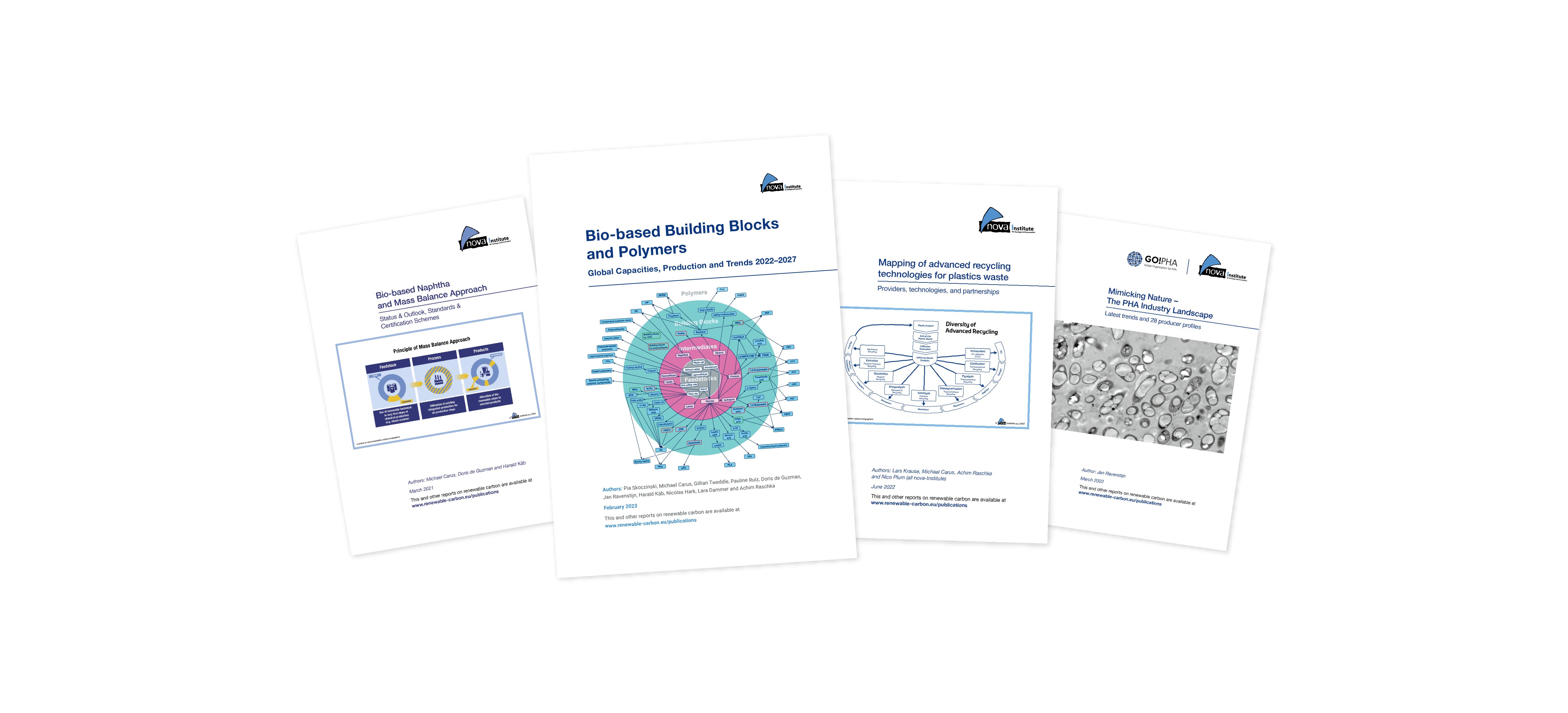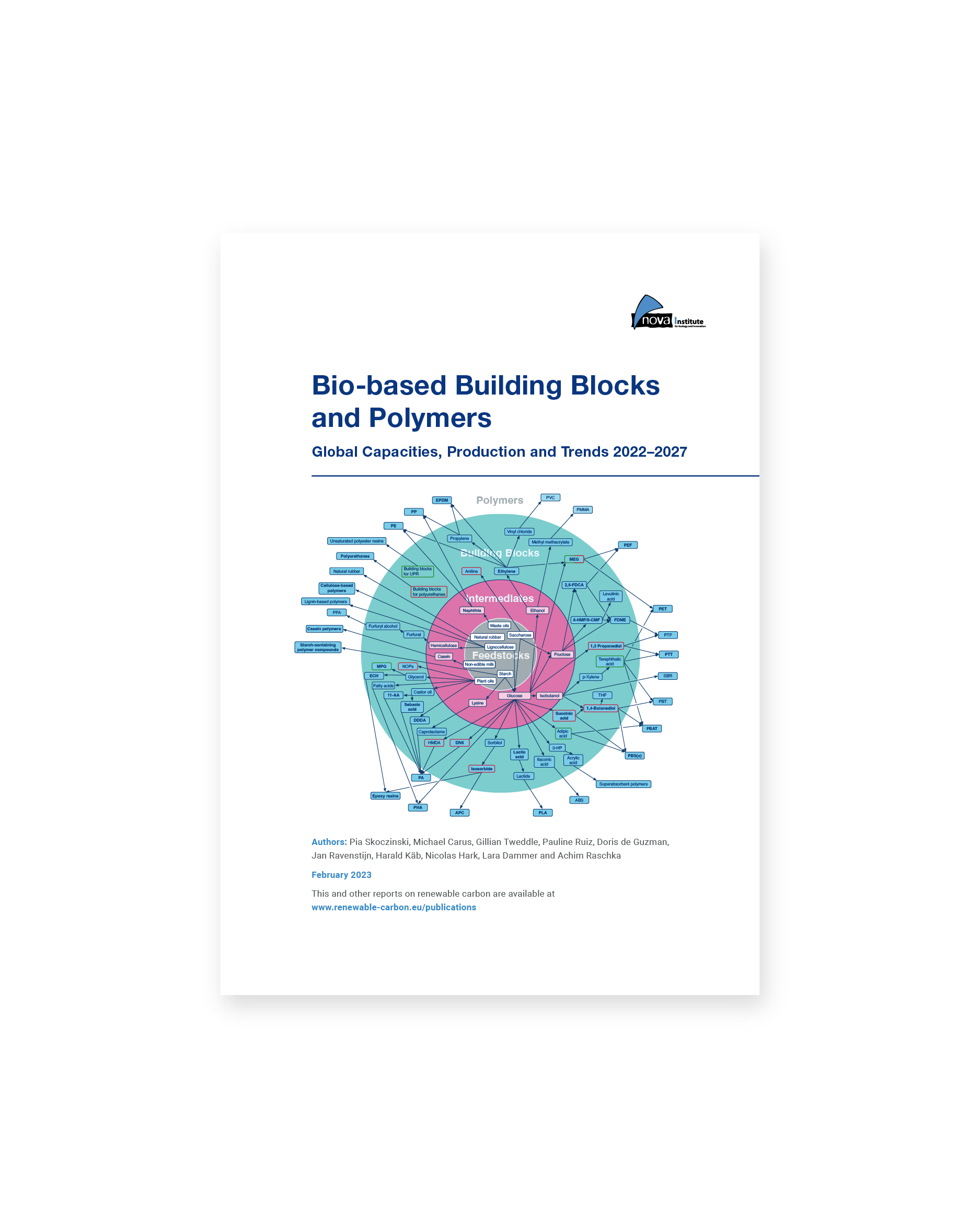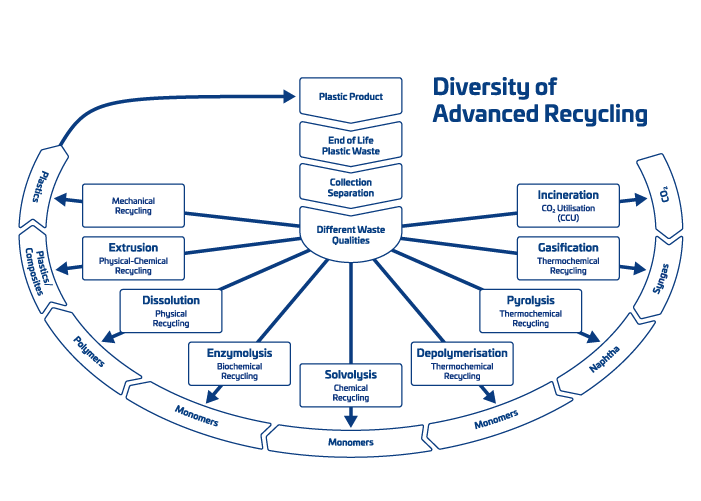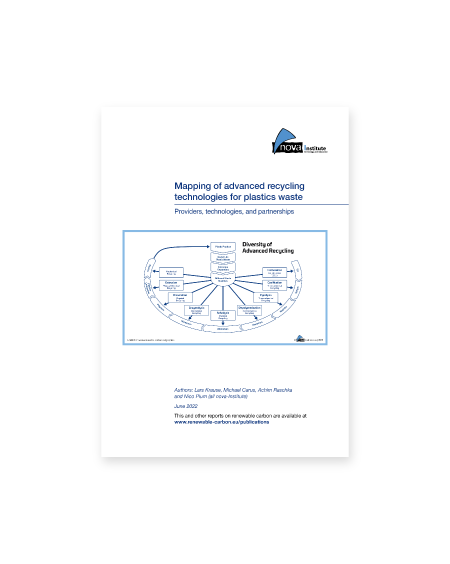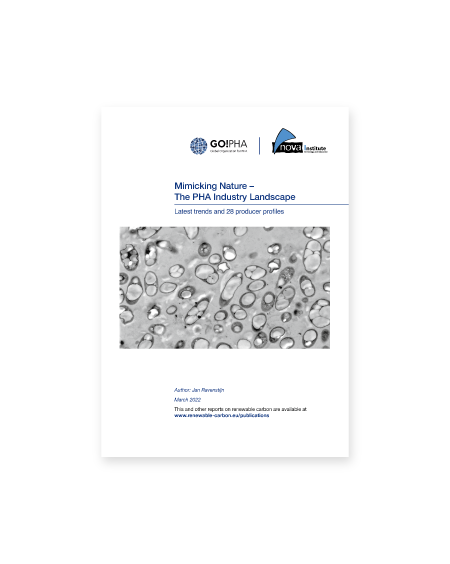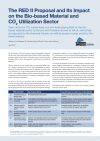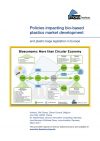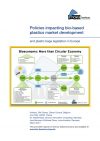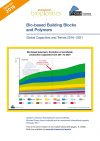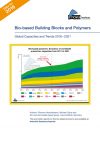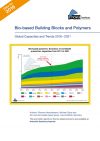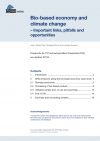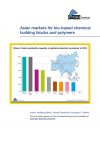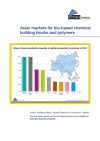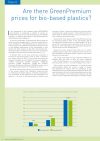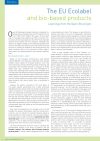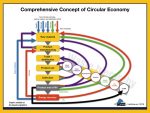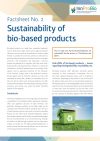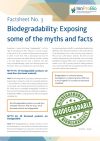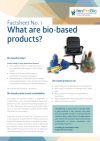Showing 321–340 of 508
-
The RED II Proposal and Its Impact on the Bio-based Material and CO2 Utilization Sector − Full version
Policy
4 Pages
595 Downloads
595 Downloads
2017-04
FREE
595
Downloads -
Policies impacting bio-based plastics market development and plastic bags legislation in Europe
Policy
74 Pages

2017-03
100 € – 500 € ex. tax
Plus 19% MwSt.Press
release Select
licenceThe newly published report looks at how different parts of the world handle the development of the bio-based plastics sector politically
New trend report highlights policies around the world and their positive and negative impacts on bio-based plastics market developments. A must read for any investor or producer – where is demand expected to increase?
The development of an innovative industrial sector is influenced by many different factors. Among others, the political framework conditions in which such a sector is built play an important role.
-
Policies impacting bio-based plastics market development and plastic bags legislation in Europe − Short version
Policy
6 Pages
1396 Downloads
1396 Downloads
2017-03
FREE
1396
Downloads -
“Bio-based Building Blocks and Polymers – Global Capacities and Trends 2016 – 2021” − Short version
Markets & Economy
24 Pages
2938 Downloads
2938 Downloads
2017-02
FREE
2938
Downloads -
Bio-based Building Blocks and Polymers – Global Capacities and Trends 2016-2021 − Graphics
Markets & Economy
14 Pages
1215 Downloads
1215 Downloads
2017-02
FREE
1215
Downloads -
Bio-based Building Blocks and Polymers – Global Capacities and Trends 2016-2021
Markets & Economy
249 Pages

2017-02
100 € – 500 € ex. tax
Plus 19% MwSt.Press
release Select
licenceIn 2016: 6.6 Million tonnes production capacity, 2% share of all polymers, €13 billion turnover, durable applications are dominating
The worldwide production capacity for bio-based polymers grew by 4% to 6.6 Million tonnes from 2015 to 2016. This represents a share of 2% of the global polymer market. The bio-based polymer turnover was about €13 billion worldwide in 2016 compared to €11 billion in 2014. Production capacity of bio-based polymers is forecasted to increase from 6.6 million tonnes in 2016 to 8.5 million tonnes by 2021.
-
Bio-based Building Blocks and Polymers – Global Capacities and Trends 2016-2021 − Preview
Markets & Economy
13 Pages
430 Downloads
430 Downloads
2017-02
FREE
430
Downloads -
Bio-based economy and climate change − Full version
Policy, Sustainability & Health
19 Pages
3500 Downloads
3500 Downloads
2017-01
FREE
3500
Downloads -
Handlungsempfehlungen für die Durchführung von Ökobilanzen für die stoffliche Nutzung von Biomasse im Spannungsfeld der Politik – Schwerpunkt: Wirkungskategorie Klimawandel − Langfassung
Sustainability & Health
16 Pages
164 Downloads
164 Downloads
2017-01
FREE
164
Downloads -
Asian markets for bio-based chemical building blocks and polymers − Short version
Markets & Economy
5 Pages
1583 Downloads
1583 Downloads
2017-01
FREE
1583
Downloads -
2017-01
100 € – 500 € ex. tax
Plus 19% MwSt.Press
release Select
licenceIncrease on Asian production capacities for bio-based chemicals, building blocks and polymers
New nova trend report “Asian markets for bio-based chemical building blocks and polymers” shows latest data and development in China, Japan, Malaysia, South Korea, Taiwan and Thailand. A global capacity of 2.4 million tonnes bio-based polymers was established in 2016, from which more than 45% of the most important bio-based polymers are produced in Asia.
-
Are there GreenPremium prices for bio-based plastics? − Article in bioplastics MAGAZINE
Markets & Economy
2 Pages
1417 Downloads
1417 Downloads
2016-12
FREE
1417
Downloads -
The EU Ecolabel and bio-based products − Article in bioplastics MAGAZINE
Policy
3 Pages
400 Downloads
400 Downloads
2016-12
FREE
400
Downloads -
“Comprehensive Concept of Circular Economy” − Graphic
Markets & Economy, Sustainability & Health
1 Page
2627 Downloads
2627 Downloads
2016-10
FREE
2627
Downloads -
785 Downloads
2016-10
FREE
785
Downloads -
Biobased Polybutylene Succinate (PBS) – An attractive polymer for biopolymer compounds − Full version
Technology
12 Pages
1544 Downloads
1544 Downloads
2016-10
FREE
1544
Downloads -
“InnProBio project: Informative factsheets about the most pressing issues” − Factsheet 2: Sustainability of bio-based products
Markets & Economy, Policy, Sustainability & Health
4 Pages
1660 Downloads
1660 Downloads
2016-08
FREE
1660
Downloads -
“InnProBio project: Informative factsheets about the most pressing issues” − Factsheet 3: Biodegradability – exposing some of the myths and facts
Markets & Economy, Policy, Sustainability & Health
5 Pages
1586 Downloads
1586 Downloads
2016-08
FREE
1586
Downloads -
“InnProBio project: Informative factsheets about the most pressing issues” − Factsheet 1: What are bio-based products?
Markets & Economy, Policy, Sustainability & Health
2 Pages
2036 Downloads
2036 Downloads
2016-08
FREE
2036
Downloads -
5th Conference on CO2-based Fuels, Chemistry and Polymers 2016 Proceedings
Markets & Economy
53 Downloads
53 Downloads
2016-06
FREE
53
Downloads



